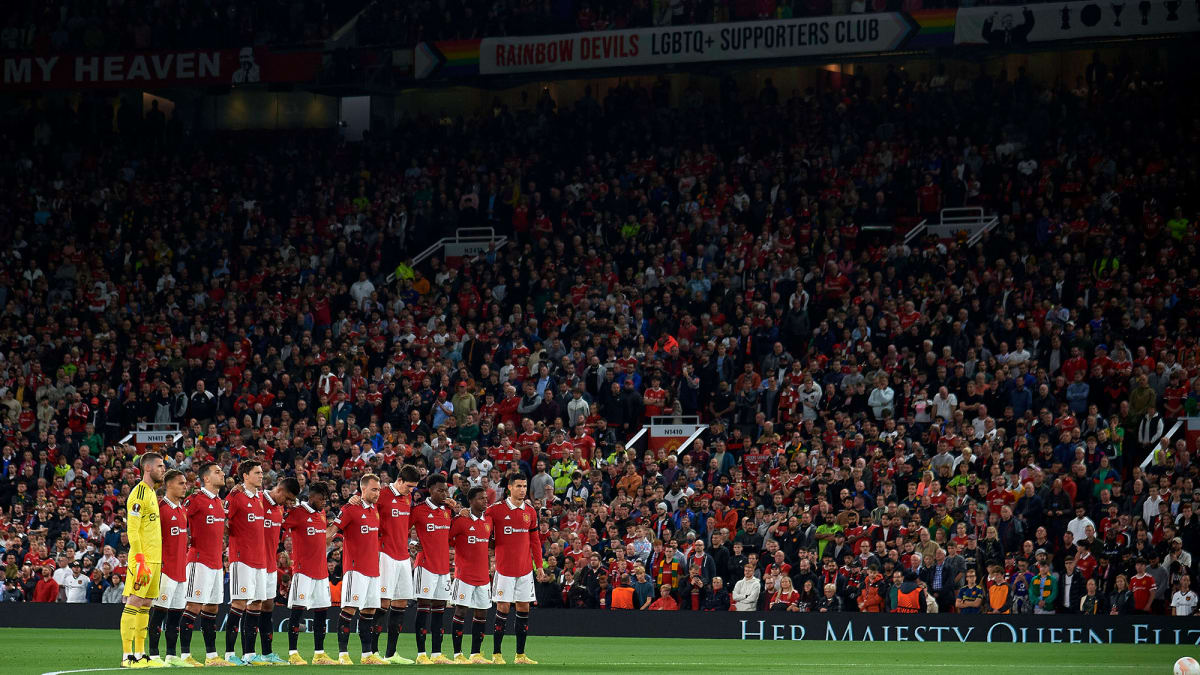The decision to call off weekend matches across all levels and leagues was made despite the power of sporting events as a vehicle to pay respects and cultivate national unity. I was at The Oval cricket ground in Kennington, southwest London, on Thursday, hoping to watch the third and decisive cricket Test match between England and South Africa. Persistent showers meant the game was repeatedly delayed and, by lunchtime, it had become apparent that something very serious was happening with the Queen.
By 2:30 p. m. , it was clear we were in the final hours, perhaps minutes, of her reign.
There was a strange sense that this was history, a day I would always remember, in the way I remember where I was when I heard Diana had died in 1997 (drunkenly asleep under a table-tennis table on a farm in Derbyshire) or when Margaret Thatcher resigned in ’90 (crowding into Room 8 at school with everybody else because that was the only classroom with a TV). I kept looking across at the pavilion thinking what a poignant sight it would be when the flags were lowered to half-mast, and wondering how the drenched remnants of the crowd might react if an official announcement were made over the loudspeaker. As it was, play had been abandoned for the day by the time death was confirmed at around 25 past 6, and so I found out on my laptop while eating a disappointing sandwich in a café on Vauxhall Bridge.
There were plenty of other people in the café, most on laptops or phones. Everybody must have known, but nobody reacted, nobody said anything—which was when it occurred to me that a sports stadium is probably the best place to experience one of those rare moments of national unity. In fact, most moments of national unity, when there is a sense of almost everybody focused on the same event, are sporting fixtures.
A moment of silence was observed at Old Trafford following the news of Her Majesty Queen Elizabeth II’s death. Jose Breton/NurPhoto/Imago Images Later in the evening, West Ham fans spontaneously sang the national anthem during the silence for the Queen before the Europa Conference League game against Romania’s FCSB; it was a hugely respectful outpouring of emotion. Manchester United honored her memory before its Europa League match vs.
Real Sociedad at Old Trafford as well. And that is what makes it so odd that all football has been postponed this weekend. The Premier League, schools and amateur football and, perhaps most frustratingly, the launch of the Women’s Super League, which had hoped to benefit from the surge of interest that has followed England’s victory in the European Championship this summer, have all stood down.
The Test will get underway Saturday, although over three days not five, with fancy dress in the stands banned. Golf’s PGA Championship, likewise, canceled Friday’s play but will restart Saturday, reduced to 54 holes. The St Leger, one of the five classics of the flat-racing calendar, has been pushed back from Saturday to Sunday.
The rugby Premiership is going ahead as scheduled Saturday. The Great North Run, the world’s biggest half-marathon, will take place as planned Sunday. So why, then, has football taken this decision?Government left the decision up to individual sports.
In 1952, football went ahead as planned three days after the death of George VI. In 1936, it went ahead five days after the death of George V. There has been some talk about security being stretched by the need to police mourners, but that was not mentioned in the Football Association’s statement and, besides, it’s hard to see how that could be a problem anywhere other than London.
Rather, this seems to be about football’s determination to be seen to do the right thing, a fear of criticism, perhaps class-driven, that stretches back to 1914 when the decision not to abandon the season at the outbreak of World War I drew condemnation. Cancellation means hundreds of thousands of fans will have had travel plans ruined. Tens of thousands of stewards and freelance workers will lose pay at a time when Britain is facing a cost-of-living crisis.
A congested fixture list has been packed even tighter. Perhaps the argument is that none of that matters alongside the importance of paying due respect. But why should that be different for football than it is for other sports? And how better to express that respect than by a mass singing of the anthem and observing a communal silence within a football stadium? That surely is a more meaningful act of remembrance than grumbling about at home while rolling news channels wheel out people with increasingly tangential connections to the royal family to share their anecdotes.
Not for the first time, the Football Association seems to have been cowed into a poor decision by the terror of potential negative publicity. There is a cost for fans, for clubs and for stadium workers, but there is also a cost in terms of the great national moment that has been lost. More Soccer Coverage:Wilson: Graham Potter’s Unique Ascent to ChelseaClubs, Leagues, Stars Pay Tribute to Queen Elizabeth IIWilson: Napoli Takes Liverpool’s Rocky Start to New Depths.

